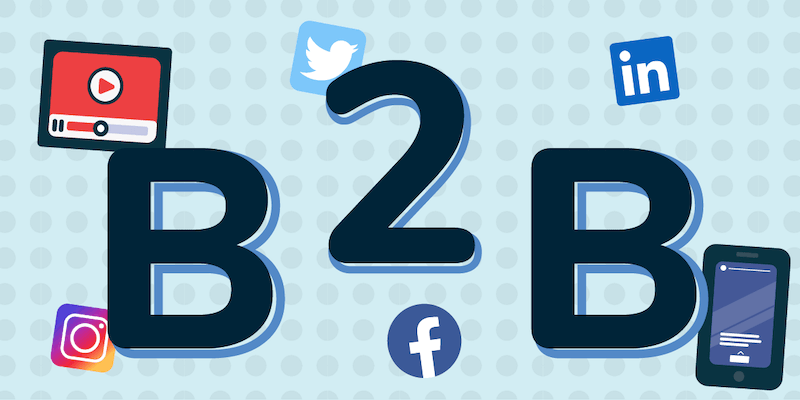The “bathing suit full body AT&T Lily fired” controversy sparked online debates about body image, privacy, and corporate responsibility. This article explores the origins of the rumors, their impact, and the broader lessons we can learn about digital ethics and online respect. Read more to uncover the truth.
introduction
The internet has been buzzing with discussions about “bathing suit full body AT&T Lily fired,” leading to widespread speculation and debate. Social media users have engaged in heated arguments, questioning whether AT&T’s commercial star, Milana Vayntrub, faced repercussions due to inappropriate scrutiny. Many people wonder if body shaming or corporate policies played a role in this controversy, fueling further curiosity.
Who Is AT&T Lily and Why Is She Famous?
Milana Vayntrub, best known for playing “Lily Adams” in AT&T commercials, has gained immense popularity for her charming and relatable character. With a background in acting and comedy, she has successfully carved out a niche in the advertising world. However, recent online discussions regarding “bathing suit full body AT&T Lily fired” have put her in an unwanted spotlight, raising concerns about privacy and workplace ethics.
The Origins of the “Bathing Suit Full Body AT&T Lily Fired” Controversy
Speculations began when edited images of Milana Vayntrub in a full-body bathing suit started circulating online. Social media users falsely claimed that these images led to her dismissal from AT&T advertisements. While there is no evidence supporting these rumors, the discussions surrounding her body image and professional standing have raised larger concerns about online harassment and corporate decision-making.
How Social Media Exacerbated the Situation
In the age of digital virality, misinformation spreads like wildfire. The phrase “bathing suit full body AT&T Lily fired” gained traction as users debated the ethics of judging a celebrity’s appearance. Social media platforms became a battleground where supporters defended her right to privacy, while others propagated baseless rumors, creating an unnecessary controversy.
Body Shaming and the Double Standards in Media
The controversy surrounding “bathing suit full body AT&T Lily fired” highlights a troubling issue in entertainment—body shaming. Women in the public eye often face unrealistic beauty standards and intrusive scrutiny. This incident sheds light on how even a simple wardrobe choice can become a source of unnecessary criticism, reflecting broader societal biases.
AT&T’s Response to the Controversy
Amid the rising discussions, AT&T clarified that Milana Vayntrub was not fired and continues to be a valuable part of their advertising campaign. The company condemned the unwarranted attention on her appearance and reaffirmed their support for their brand ambassador. Their stance aimed to quell the false claims surrounding “bathing suit full body AT&T Lily fired.”
Milana Vayntrub’s Perspective on Online Harassment
Milana Vayntrub has openly spoken about the difficulties of being in the public eye, particularly regarding online harassment. She has advocated for digital safety and respectful online interactions, emphasizing that no one should face undue scrutiny over their body. The phrase “bathing suit full body AT&T Lily fired” has only intensified discussions on how celebrities handle intrusive internet culture.
The Role of Fake News in Celebrity Scandals
In the digital era, misinformation campaigns often fuel unnecessary controversies. The phrase “bathing suit full body AT&T Lily fired” is an example of how false narratives gain traction without credible sources. These misleading claims can damage reputations, forcing celebrities to constantly defend themselves against baseless accusations.
Why the Public Needs to Be More Critical of Viral Trends
Many people consume viral content without verifying its authenticity. The “bathing suit full body AT&T Lily fired” controversy demonstrates the dangers of believing unverified news. Individuals should practice digital literacy by fact-checking sources before spreading misinformation, ensuring that social media platforms are not breeding grounds for falsehoods.
Corporate Responsibility in Addressing Harassment
Companies must take a stand against the mistreatment of their employees and brand representatives. AT&T’s swift response to “bathing suit full body AT&T Lily fired” rumors illustrates corporate responsibility in mitigating online harassment. Businesses should proactively support their employees, ensuring they are protected from damaging speculation.
The Ethics of Discussing Celebrity Personal Lives
Public figures deserve personal privacy, yet internet culture often ignores this right. The “bathing suit full body AT&T Lily fired” incident showcases the blurred lines between personal freedom and public curiosity. Ethical considerations must be taken into account when discussing someone’s body or personal choices.
The Psychological Impact of Online Scrutiny
Constant online scrutiny can take a toll on mental health. The discussions around “bathing suit full body AT&T Lily fired” highlight the psychological stress celebrities endure when their bodies become subjects of unwanted debate. Raising awareness about these pressures is crucial in creating a more empathetic digital culture.
A Lesson in Digital Empathy and Respect
The internet can be a powerful tool for both good and harm. The “bathing suit full body AT&T Lily fired” debate serves as a reminder that public figures are human too, deserving of dignity and respect. Social media users must be more mindful of their words and the impact they have on others.
Encouraging a More Positive and Inclusive Media Culture
Rather than engaging in body shaming or speculation, media consumers should focus on fostering an inclusive and body-positive culture. The “bathing suit full body AT&T Lily fired” controversy should prompt discussions about how we can better support individuals in the public eye without subjecting them to unwarranted criticism.
The Future of Brand Representation in Advertising
Companies like AT&T have a responsibility to protect their brand ambassadors from unnecessary scrutiny. Moving forward, brands must adopt strategies that promote positive representation and counter misinformation, ensuring that incidents like “bathing suit full body AT&T Lily fired” do not escalate beyond control.
Addressing the Bigger Issue of Cyberbullying
The internet has given rise to cyberbullying, where baseless claims like “bathing suit full body AT&T Lily fired” can damage reputations. Tackling cyberbullying requires collective action from individuals, corporations, and digital platforms to ensure that online spaces remain respectful and free from harassment.
The Importance of Defending Women in the Public Eye
Women in media often face harsher scrutiny than their male counterparts. The “bathing suit full body AT&T Lily fired” discourse reveals how gender biases persist in entertainment. Defending women from such unfair criticism is essential in creating a more equitable and respectful industry.
What We Can Learn from This Controversy
The “bathing suit full body AT&T Lily fired” debate is a reflection of larger societal issues, including privacy, online harassment, and media responsibility. By learning from these discussions, we can work toward fostering a more respectful digital environment where public figures are valued for their work rather than subjected to unnecessary scrutiny.
Final Thoughts on the “Bathing Suit Full Body AT&T Lily Fired” Controversy
While rumors and misinformation spread quickly, it is crucial to focus on verified information and ethical discussions. The “bathing suit full body AT&T Lily fired” debate underscores the importance of responsible digital behavior. As we move forward, let’s prioritize kindness and respect in all online interactions.
Read Also: How AI is Empowering Aspiring Filmmakers to Create Hollywood-Level Movies





